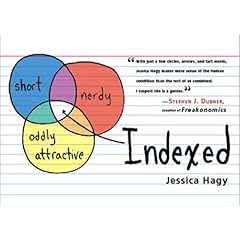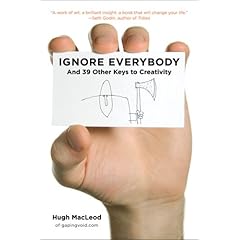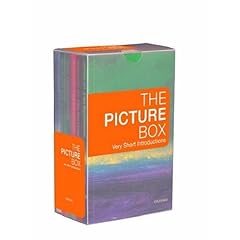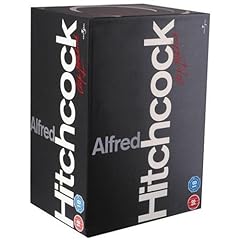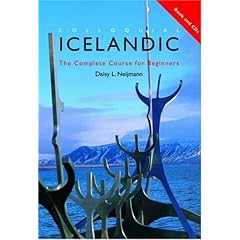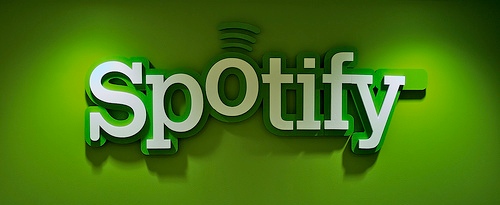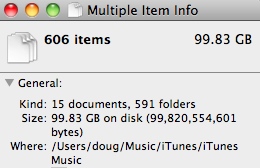Read what I’ve read: 2009 edition.
CC BY-SA gadl
For some reason I didn’t do this last year – post which books I’ve read for pleasure over the last 12 months, coupled with a short review. And my 2007 version seems to be sans images now. Oh well. I’ll do it properly this year! Note that these books aren’t those I’ve read for my Ed.D. thesis – you can see those over at my wiki (along with notes)
Here, in chronological order, are the books I’ve read this year (click on images to see them at Amazon UK). If you’re impatient, scroll to the bottom for my absolute must-have book, one that I’ll be re-reading for the rest of my life!
Dave Eggers – You Shall Know Our Velocity (2-15 January)
After reading nothing but positive reviews for all of Eggers’ work, I thought this was a fairly safe bet to start off my year. Despite finishing it, however, I was left thinking it was nothing more than average and ‘not my sort of book’. He had some interesting observations at times, but it certainly wasn’t re-readable, for me.
Iris Murdoch – The Sovereignty of Good (16-22 January)
This consists of three essays. I though the first two were thought-provoking, whilst the third not so much. Not really one for non-philosophically trained folk.
E.H. Gombrich – A Little History of the World (22 January – 10 February)
Absolutely marvellous. One for children and adults alike and one that, as a (sometime) teacher of History, I wish had been available in an English translation when I was young. Utterly re-readable. 🙂
Mihaly Csikszentmihalyi – Flow: the psychology of optimal experience (11-26 February)
A life-changing book. Not only did change the direction of my Ed.D. thesis (I’m going to be investigating ‘digital flow’ now) but will illuminate my thinking and actions in everyday life. Instant classic!
Ayn Rand – Anthem (1 March)
This novella promised much. It had been referenced several times in things I’d read, so I thought I should read the original. It was disappointing. 🙁
Joseph Cummins – History’s Great Untold Stories: obscure events of lasting importance (2-26 March)
The tragedy of 2009 for me was when Borders, my favourite bookstore chain, went into administration. At the beginning of the year it offered this at half-price in one of its London stores (I was down for a meeting with Nick Dennis, who also availed himself of the opportunity). It was an eye-opening read: some stuff of which I’d never even heard which had a huge bearing on history. Essential.
Sun Tzu – The Art of War (27-28 March)
Again, a book that is referenced often but which disappointed. Didn’t find much in the way of inspiration or advice within it.
John Burrow – A History of Histories (29 March – 12 May)
Overly academic in places, but overall an interesting and informative read. Probably only for lovers of History.
Georgina Harding – The Solitude of Thomas Cave (13-22 May)
Easily the best of the works of fiction I read this year. The story of a man left behind in the cold. Really different, interesting (and relatively short!)
Clay Shirky – Here Comes Everybody (June sometime)
A great explanation of how social media has changed everything. Not only interesting in and of itself, but useful to give to people who don’t ‘get it’.
Joseph Cummins – Cast Away: Epic true stories of shipwreck, piracy and mutiny on the high seas (June – 14 July)
After enjoying the author’s History’s Great Untold Stories: obscure events of lasting importance I was delighted to find two more of his works (in a similar format) on offer. Perfect bedtime reading. 😀
Joseph Cummins – Great Rivals in History: when politics gets personal (15 July – 8 September)
I enjoyed this as the format is perfect for bedtime reading, but I’d recommend Cummins’ other two above this particular one. A useful background to stuff I already knew, nonetheless.
Seth Godin – Tribes (11 August)
Just like his blog posts. Eminently readable, empowering, and with a call to action for leaders (i.e. everyone!)
Brian Clegg – A Brief Guide of Infinity: the quest to think the unthinkable (20 August – 2 September)
Mind-expanding. I can’t say better than that!
Ann Patchett – Bel Canto (10-11 September)
This book won several prizes, and so I was looking forward to it. However, the author’s style began to grate and, after a while where nothing much happened, I gave up on it.
Edward Said – Beginnings: intention and method (12-29 September)
I got about half-way through this before I realised I didn’t really understand any of it and gave up. Far too heavy for (predominantly) bedtime reading. 🙁
Joseph Conrad – Nostromo (30 September – 3 October)
Really high hopes for this after enjoying Conrad’s Heart of Darkness last year. However, it was depressing and written in a slightly different style. Gave up.
C Leadbeater – We-Think: mass innovation, not mass production (3-15 October)
Poorly written and researched and, overall, didn’t tell me anything I didn’t already know. Avoid.
Michel Faber – The Fahrenheit Twins (16-26 October)
A wonderful find. It was in the absolutely-last-chance-don’t-miss-it-these-are-the-books-we-haven’t-been-able-to-sell-in-years section of a discount bookstore. I think it cost me about 49p. It was, however, really, really good! Stories from the margins of society and the last one (which gives the book it’s title) is downright bizarre. Recommended! :-p
Peter Watson – Ideas: a History from Fire to Freud (19 October – 29 December)
The author is a Professor of Archaeology and you can tell. The start is much better than the rest – which isn’t too bad itself – but he’s best when not having to rely on other people’s work. Fairly polemical towards the end.
Haruki Murakami – What I Talk About When I Talk About Running (8 November)
Truly inspirational. Murakami, in a humble way, talks about how he’s been wildly successful as well as the synergy between his life as a runner and his life as a writer. Superb.
It’s been mostly non-fiction for me in 2009 – I plan to remedy that in 2010. 🙂
There’s been one book that, despite not being very long, I’ve been reading since June. The reason? I don’t want it to end! Schopenhauer described it as,”Absolutely unique . . . a book made for constant use—a companion for life,” whilst Nietzsche commented, “Europe has never produced anything finer or more complicated in matters of moral subtlety.” It really is a gem.
And the name of this book?
The Art of Worldly Wisdom, published in the 17th century by the Jesuit scholar Balthasar Gracián consists of 300 maxims. You can view the full text at Google Docs but I really would recommend purchasing your own inexpensive copy. It really is, as Schopenhauer says, ‘a companion for life’! 😀
























 Apparently I’m ‘hard to buy for’. I probably don’t make it easier for people by proclaiming – quite rightly, I think – that if you have to ask people what they want for a birthday or Christmas then it’s not really a ‘gift’ as such.
Apparently I’m ‘hard to buy for’. I probably don’t make it easier for people by proclaiming – quite rightly, I think – that if you have to ask people what they want for a birthday or Christmas then it’s not really a ‘gift’ as such.